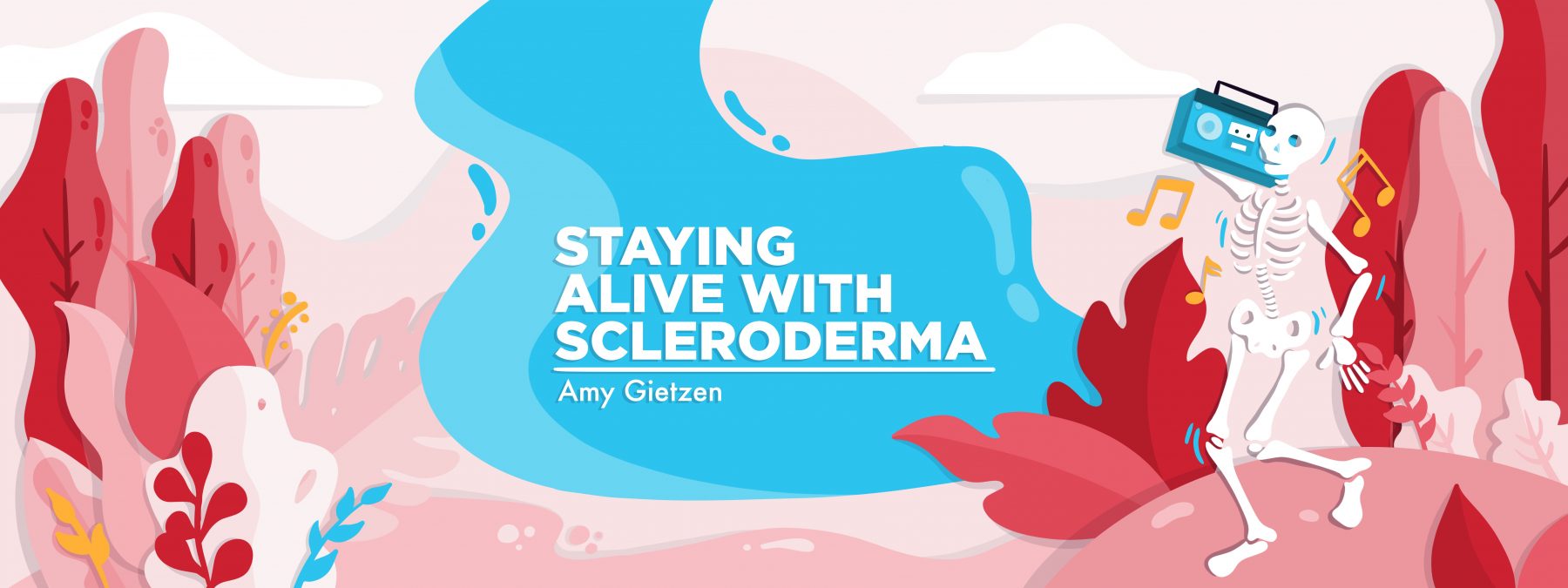How Anxiety Led to Fatigue After My Scary Cardiac Event
Columnist Amy Gietzen had many sleepless nights after going into heart failure

For some scleroderma patients, loss of sleep and fatigue are significant issues. Trying to manage a barrage of symptoms while exhausted is a tiring game of cat and mouse.
Fortunately, until recently, I had only experienced fatigue in small doses. The occasional nap or sleepless night was all that rattled my routine. It wasn’t until I was diagnosed with heart failure in 2020 that I realized that sleep plays an essential role in my disease management.
A frightening cardiac event
It was a warm, sunny day in late June, and my dad and I had just enjoyed a fantastic lunch outdoors with my brother and sister-in-law. As we made our way home, I started to feel off. My tongue became numb and I lost feeling in my fingertips.
After walking through our front door, I saw spots and grabbed the countertop in our living room for support. The next thing I knew, my heart was racing and I felt dizzy and nauseous. An hour later, I was in the emergency room receiving intravenous fluids. It was in that small, sterile room that I was told I had ventricular tachycardia, or v-tach.
V-tach is a kind of abnormal heart rhythm in which the lower chamber of the heart beats too fast to pump enough oxygenated blood throughout the body. It can sometimes lead to cardiac arrest.
I’ve learned a lot about my body in the two decades I’ve been living with scleroderma. I’ve overcome ulcerated wounds, dozens of procedures, such as a lung biopsy, and multiple surgeries to straighten my fingers and toes. However, nothing I’d dealt with up to that point came close to what I experienced over the next year.
I was released from the hospital three days after my ER visit. The next step was to get in touch with my team of specialists to try to uncover why this had happened and how I could prevent reoccurrences. Within five days, I was traveling from New York to Pittsburgh to see my cardiac team, with a slew of tests, including a cardiac MRI and a stress test, on the books.
A week after testing, my doctors concluded that I had fibrosis in my heart. To ensure that my heart rate remained stable, I was put on antiarrhythmic medication. And on July 9, I had an implantable cardioverter-defibrillator placed underneath my left armpit.
Anxiety and fatigue soon follow
I was anxiety-ridden after such a major cardiac event. I just couldn’t shake the feelings of unease and sheer terror.
After my surgery, I’d lie awake each night staring at the wall, wondering if and when my device would shock my heart. The more I thought about it, the more sleep eluded me. I knew logically that the device was implanted to help me. But my irrational thoughts played tricks on my sensibilities.
As sleepless nights turned into days, I started walking around like a zombie. My eyes were bloodshot, my temper was short, and I was starting to forget basic things like the date and time. There were times I’d fall asleep standing up.
Life was turning into a hell I had no reprieve from. Regaining control over my sleeping habits and anxiety became priority number one. I knew I needed to stop thinking about the possibility of receiving a cardiac shock.
First, I scheduled a telehealth appointment with my doctor to chat about increasing my anxiety medications. My next step was to avoid any kind of stimulation before bed by turning off my phone and substituting television for relaxing music. The last step was to cut out caffeine and sugar consumption after dinner.
By making small changes in my bedtime routine, diet, and medications, my sleep schedule eventually returned to normal.
Scleroderma is a tricky disease to manage, and sometimes setbacks lead to unexpected symptoms. My best advice is to prioritize your health, no matter what scleroderma throws at you. While my experience with fatigue taught me how a lack of sleep can affect the body, I also learned that I can overcome anything I set my mind to.
Note: Scleroderma News is strictly a news and information website about the disease. It does not provide medical advice, diagnosis, or treatment. This content is not intended to be a substitute for professional medical advice, diagnosis, or treatment. Always seek the advice of your physician or other qualified health provider with any questions you may have regarding a medical condition. Never disregard professional medical advice or delay in seeking it because of something you have read on this website. The opinions expressed in this column are not those of Scleroderma News or its parent company, BioNews, and are intended to spark discussion about issues pertaining to scleroderma.








Comments